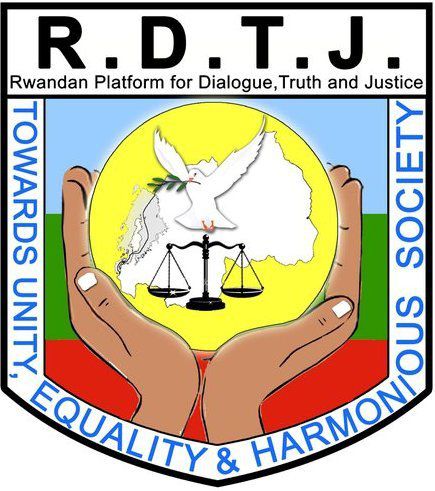THE RDTJ CONDEMNS XENOPHOBIC ATTACKS AGAINST FOREIGN NATIONALS

PRESS RELEASE
The Rwandan platform for Dialogue, Truth and Justice (RDTJ) – a South Africa-based Rwandan refugees’ organisation – strongly condemns a wave of xenophobic attacks against foreigners, mainly non-citizens hailing from African countries. These spate attacks that have spread from Durban to Johannesburg and other areas in South Africa have left more than seven people dead, many others injured, and more than 3000 foreign nationals internally displaced. The manifestations of xenophobic violence have been happening in certain parts of South Africa since 2008 where more than 65 people lost their lives, but no one was judicially held accountable and yet these killings were done on daylight.
African and Asian nationals – mostly economic migrants, refugees and asylum seekers – have been subject to all sorts of hate and abuse, but all these crimes of hates were not dealt with appropriately because the Government of South Africa has been politically insisting that these regrettable and barbaric acts were merely criminal activities. The consequence of this political stance is illustrative. We have seen actual attacks that brought the world to a standstill. They are shocking and deeply touch the heart of humanity.
The denial of xenophobic violence, coupled by an absence of taking a firm public, moral and legal stance against the perpetrators of xenophobic violence or hate crimes has led to outbreaks of xenophobic violence in 2008, 2010 and 2015 in major cities of South Africa. These sporadic xenophobic attacks that are continuously being perpetrated against foreign nationals – individually or collectively – are committed by members of their host communities, including certain state officials, neighbours, and landlords. When we talk about xenophobic attacks, we include non-physical violence, such insults, swearing, inflammatory statements, discriminative regulations and other form of abuse that psychologically and adversely affect an individual.
Though physical xenophobic attacks may be viewed as barbaric acts that shocked human conscience, the RDTJ is still concerned with other forms of non-physical xenophobic attacks which, sometimes, in certain circumstances, lead to physical violence. It is concerned with the fact that the police force which is mandated to protecting humanity – citizens and non-citizen alike – reduces its duties to mere passive spectators; a grave situation that encourages killing, looting, burning, and injuring African brothers and sisters. Both attacks and passivity of police force are grounded in the argument that the attacked communities are nothing else but “foreigners” who happen to be self-employed or employed by private industries. The fact that their activities are legal and legitimate is not given a required consideration by the police. In so doing they failed in upholding their constitutional duties to prevent and combat crimes, to protect and secure their fellow Africans and Asians and to uphold and enforce law that were enacted by a free and democratic government for the purpose of protecting an individual’s property, integrity, dignity and wellbeing, on the one hand and to guard against recurrence of oppression and apartheid practices, on the other.
The tendency of South African officials to apply the term foreigners in a sense of restricting it to African migrants and in the sense of denoting that they are an impediment to South African betterment and prosperity had an implication of inciting xenophobic violence. Such tendency carries with it a negative impact when it is usually invoked for the purpose of linking it to or associating it with the government’s failure to meet its constitutional obligations in respect of delivering socio-economic services or for the purpose of substantiating the root causes of criminal activities and social pathologies, such as, unemployment, robberies, alcoholism, drug addicts, prostitution, diseases, gangsterism, social inequality or economic disparities, and illiteracy. Politicians statements which hold that African migrants, refugees and asylum-seekers are economic vultures that came to benefit from the fruits of South African liberation struggle or who came to take employment opportunities from locals are, it cannot be denied, major contributory factors that nourish xenophobic violence. It is particularly important to note that non-citizens – Africans and non-Africans alike – are allowed to enter and stay in the country under the conditions and terms prescribed by the immigration and refugee policies. Like other countries, these policies set out the manner in which the issues of illegal migrants or bogus refugees should be humanely resolved. It is only illegal migrants who are not allowed to access labour markets. Employers are quite aware of this exclusive approach and penalties are prescribed by the immigration policy for employers who may employ illegal foreigners.
However, by virtue of illegality, illegal foreigner cannot be subject to physical or psychological torture. Neither should they be harassed by police or citizens. Killing, torture, and inhuman treatment are inconsistent with both human rights and constitutional principles.
In responding to the issue of illegal immigration, it is imperative that the state use its legal mechanism to inspect business and work places to ensure that no illegal foreigner/migrants are running business or employed or to ensure that they are detected and deported in accordance with the immigration policy. This should be given precedence so as to decrease misconception and prejudices held by black South Africans, which have potential to regard other Africans as unworthy and underserving.
Prevention and deterrence of xenophobia in South Africa fall within the mandate of the Department of Home Affairs (DHA). However, more problematic is that the DHA has not yet established any mechanism to punish any official who utters inflammatory remarks or any special measures to deal with a person who is caught perpetrating or reported to perpetrate hate crimes.
We as concerned Rwandan refugees, together with our fellow African and Asians who are victims of xenophobic violence or xenophobic ills, we find it desirable for the government to consider the following recommendations in order to ensure non-xenophobic, non-racial and non-sexism society:
· To include in the education curriculum the history of African countries, including the role played by fellow Africans in the struggle to liberate South African from the ravages of apartheid;
· To conduct workshop awareness on the necessity of South African economy to employ foreign nationals who are needed, especially African brothers and sisters, on the one hand and to give sanctuary to asylum-seekers fleeing from persecutions and human rights abuses, on the other;
· To establish an efficiently-expedited asylum system for administering refugee protection in the manner that is consistent to constitutional and international obligations;
· To review the policy that only facilitate entry of foreign nationals with critical skills so as to establish a legal mechanism that recognise economic migrants whereby a legal dispensation is created that allows them to enter, sojourn and work in South Africa, subject to conditions prescribed by law;
· To include foreign nationals in the business training programme to teach locals how to start own self-help initiatives;
· To recognise the perpetration of xenophobic attacks and hate crimes and to establish a special court that deals with crimes and practices associated with xenophobic violence and other adverse assumptions of hate, inflammatory, and discriminatory nature;
· To adjust the consistency between South African traditional and political leadership and create a joint body to fight xenophobia and related problems where that body or institution should include foreign nationals.
· To establish Xenophobic Violence Funds to compensate those who lost their beloved ones or were injured or whose properties were looted or damaged;
· To assist foreign nationals affected by xenophobic attacks to be re-integrated into local communities;
· To hold to account individuals who fuelled or fuel xenophobic attacks through public statements.
It is the RTDJ belief that justice and respect for humanity would come by only if the worth and human dignity of each and every person is respected and only if the criminal laws are applied to all individuals without favour or without regard to race, social status, or nationality. We have come along as Africans to enjoy self-rule and freedom. Any limitation of or interference with our hard-won freedom should be subject to reasonable justification as it is envisaged by the South Africa’s Constitution and subject to being applied by the state institutions. The barbaric/xenophobic acts morally undermine the wish of Nelson Mandela, the Father of the Nation, holding that “[n[ever, never, and never again shall it be that this beautiful land will again experience the oppression of one by another.’ It is only oppression and undermining another group of person’s dignity that reduce a country to a state of anarchy.
Done at Cape Town, South Africa, on April 20, 2015
For RDTJ
Callixte Kavuro
Chairperson
For more information, contact us:
PO Box 31450 - Tokai, 7966 –
Cape Town, Western Cape,
South Africa
info.rdtj@gmail.com

/image%2F1189270%2F20210814%2Fob_eecf7e_images.jpeg)
